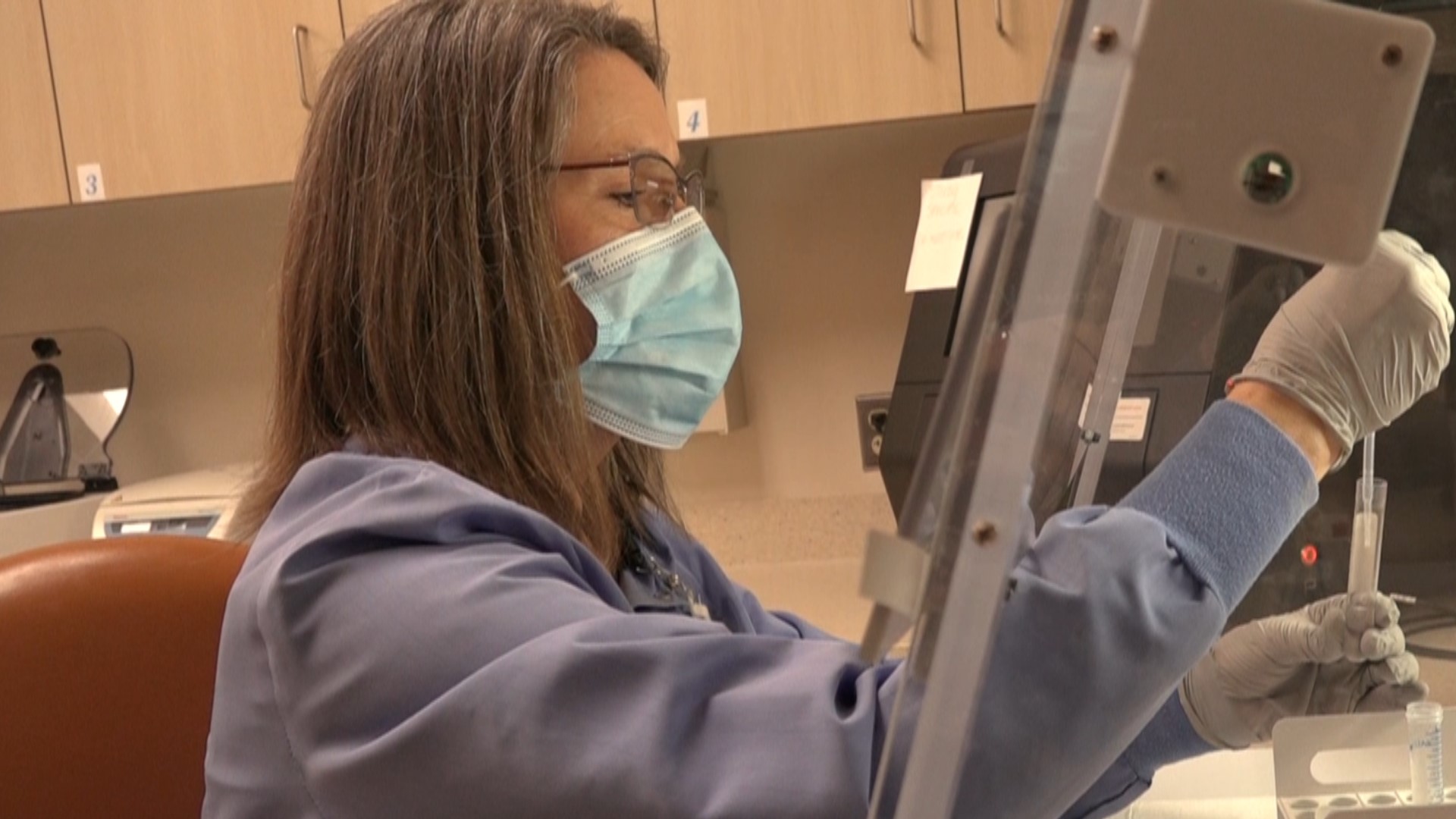GRAND RAPIDS, Mich. — Cancer research is taking place round the clock, all over the world. Locally, the efforts have been underway for many years through the Cancer Research Consortium of West Michigan. Headquartered in Grand Rapids, the company works with 12 different hospitals, providing education and clinical trials.
“We are part of what's called the NCORP, the National Community Oncology Research Program, and we are a group of 46 centers that administer these clinical trials,” said Dr. Kathleen Yost, principal investigator. “We were one of the founding members back in 1983. Even before that, in the 70s, Spectrum Health and West Michigan put together a cancer research program to try to optimize the best treatment programs, and even back then worked with the NCI. So, we have a long track record. We're one of the legacy programs in the country.”
NCI stands for National Cancer Institute, which provides grant money to the consortium. The local efforts are also funded by participating hospitals.
“Spectrum Health is one of our members. Our actual physical location is here at Spectrum, but we have 12 different members across West Michigan,” Yost said. “Most all of the hospitals that you can think of are our members. It goes all the way to the lakeshore with Muskegon, down to Kalamazoo and Battle Creek, and up to Traverse City and Reed City, and so forth. So, we really run the gamut of the entire western lower peninsula.”
The work is extensive, covering everything from how to make treatments more efficient and cost effective to reducing side effects. The research can be time-consuming, but Yost said these efforts, combined with the willingness of volunteers, are helping save lives.
“You can devise all kinds of things in the lab and on the computer, but until you test it in a person and compare that treatment to what we already have, you don't know if that treatment is any better or not. This is where the rubber hits the road,” she said. “The people who make this possible are the patients who volunteer themselves for the betterment of society and finding out what the best treatments are. We couldn’t do it without them. A great deal of appreciation needs to be extended to them.”
There are also ongoing efforts to prevent cancer, which involves advancements in the screening process. Yost said the future looks promising, but there’s still a lot of work to be done.
“We definitely see improvements. It's incremental, though,” she said. “Everybody's always looking for the cure for cancer. Well, cancer is several hundred different diseases, and the treatments are changing. Every six months to a year, our treatments are improving and changing. New drugs are being invented, new ways to use those drugs and so forth. But we've had some breakthroughs in recent years. Immune therapy has been a major breakthrough with a number of cancers, harvesting our immune system to fight the cancer, rather than simply giving chemotherapy drugs.”
To learn more about these efforts, click here.
►Make it easy to keep up to date with more stories like this. Download the 13 ON YOUR SIDE app now.
Have a news tip? Email news@13onyourside.com, visit our Facebook page or Twitter. Subscribe to our YouTube channel.

